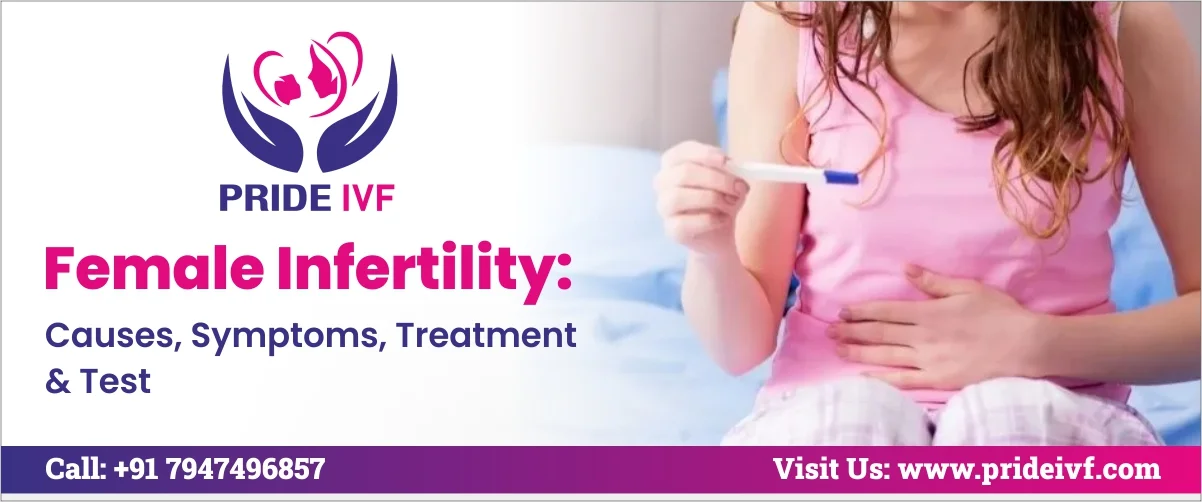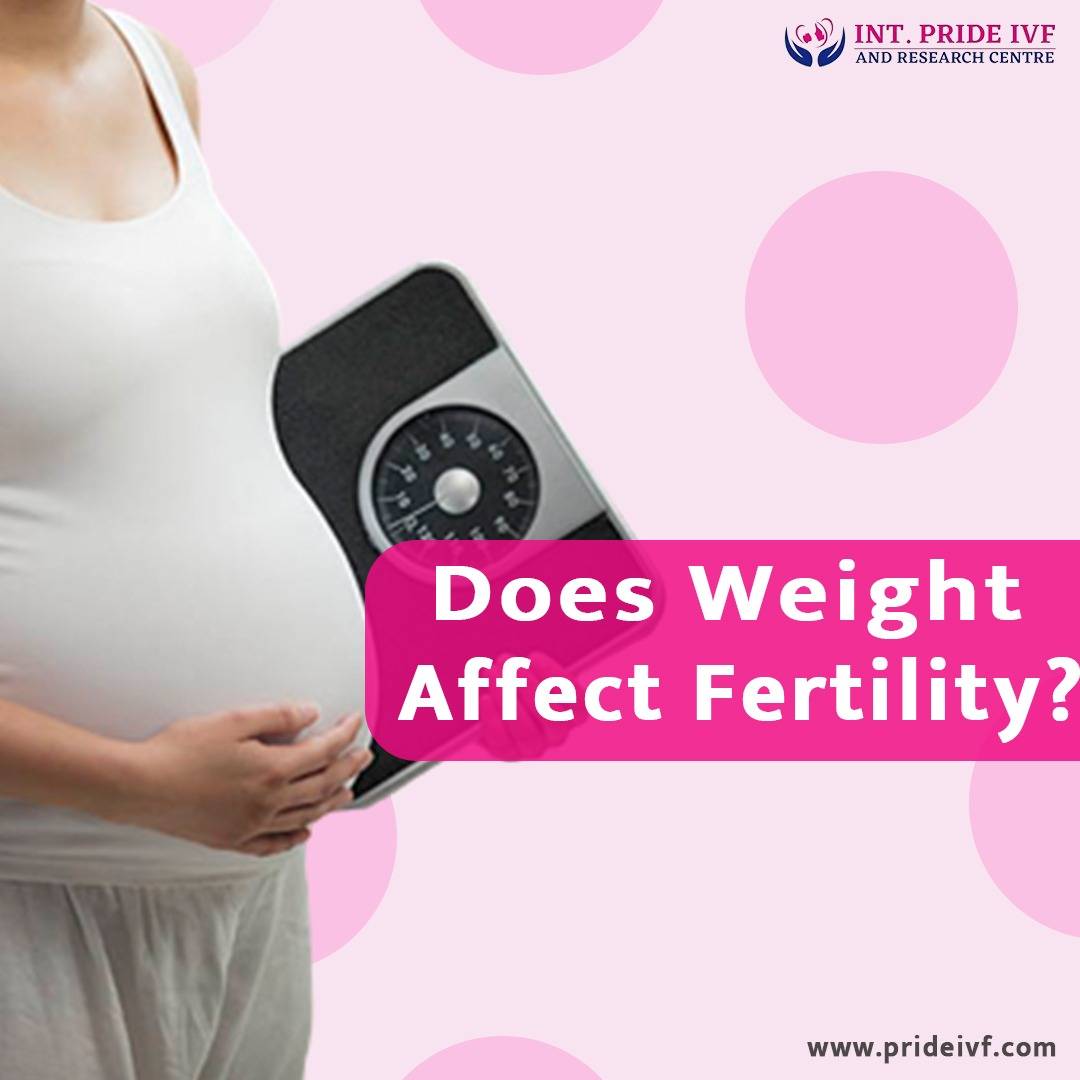#Female infertility, defined as the inability to conceive or carry a pregnancy to term, is a complex and emotionally challenging condition affecting millions of women worldwide.
Addressing female infertility is of paramount importance due to its profound impact on individuals and couples, affecting their emotional well-being and family planning goals. This article provides a comprehensive exploration of female infertility, delving into its causes, symptoms, treatment options, and diagnostic tests. By shedding light on this topic, we aim to empower individuals with knowledge to make informed decisions and seek appropriate medical guidance.




Female Infertility Causes
Female infertility can result from a wide range of factors, both physiological and medical. Understanding these causes is crucial for effective diagnosis and treatment. Here, we explore the various causes of female infertility.
Ovulatory Disorders
Ovulatory disorders are a common underlying cause of female infertility. Polycystic Ovary Syndrome (PCOS), a prevalent condition, disrupts ovulation by causing irregular or absent menstrual periods and the presence of multiple ovarian cysts. PCOD is characterized by elevated androgen levels, insulin resistance, and hormonal imbalances, all of which can impede the development and release of eggs. Hypothalamic dysfunction, attributed to factors like stress, excessive exercise, and low body weight, can lead to irregular or absent ovulation due to disruptions in the hypothalamus, a vital regulator of the menstrual cycle. Additionally, premature ovarian failure (POF), occurring before age 40, results in diminished egg quantity and quality, often stemming from genetic, autoimmune, or toxic influences, contributing to female infertility.
Tubal and Uterine Factors
Blocked fallopian tubes and uterine fibroids are two significant factors contributing to female infertility. Fallopian tubes serve as the conduit for sperm to reach the egg and for the fertilized egg’s passage to the uterus. Any blockages or damage to these tubes, often caused by conditions like pelvic inflammatory disease (PID), endometriosis, or prior pelvic surgeries, can hinder the natural process of fertilization. Uterine fibroids, on the other hand, are noncancerous growths that develop within the uterine wall. Depending on their size and location, fibroids can disrupt the implantation of a fertilized egg or obstruct the fallopian tubes’ function. In cases of infertility related to uterine fibroids, treatment options such as surgical removal or other medical interventions may be necessary to restore fertility and enhance the chances of conception.
Endometriosis
Endometriosis is a chronic condition in which tissue similar to the uterine lining grows outside the uterus. This tissue can cause inflammation, scarring, and the formation of adhesions, which may disrupt the normal functioning of the reproductive organs. Severe endometriosis can lead to infertility by affecting egg quality, fallopian tube function, and implantation.
Age-Related Infertility
Age is a significant factor in female fertility. As women age, their ovarian reserve decreases, and the quality of their eggs declines. This natural aging process can lead to difficulty conceiving, an increased risk of miscarriage, and a higher likelihood of chromosomal abnormalities in offspring. The chances of conception decrease notably after the age of 35. You can consult Dr. Nidhi Sharma, infertility specialist in India, at Pride IVF Center to know more about the causes of infertility.
Pelvic Inflammatory Disease (PID)
PID is a bacterial infection that primarily affects the reproductive organs, including the fallopian tubes and uterus. If left untreated, PID can cause scarring and damage to these organs, leading to infertility. Prompt diagnosis and treatment of PID are crucial to prevent long-term fertility issues.
Hormonal Imbalances
Hormonal imbalances, such as thyroid disorders or elevated levels of prolactin, can disrupt the menstrual cycle and ovulation. These imbalances can be caused by various factors, including stress, medications, or underlying medical conditions. Proper hormonal regulation is essential for regular and healthy ovulation.
Thyroid Disorders
The thyroid gland plays a critical role in regulating metabolism and hormone production. Thyroid disorders, such as hypothyroidism or hyperthyroidism, can impact fertility by affecting ovulation and the uterine environment. Correcting thyroid dysfunction through medication and management is essential for restoring fertility.
Autoimmune Conditions
Some autoimmune disorders, such as antiphospholipid syndrome and lupus, can lead to recurrent miscarriages and fertility issues. These conditions may cause the immune system to attack the developing embryo or interfere with the uterine lining’s ability to support pregnancy. Treatment often involves medication and close monitoring.
Female Infertility Symptoms
Female infertility can manifest through various symptoms, often related to disruptions in the reproductive system. Recognizing these signs is essential for seeking timely medical evaluation and intervention. Here are some common female infertility symptoms:
Irregular Menstrual Cycles
Irregular periods, characterized by unpredictable or unusually long menstrual cycles, can be an indication of ovulatory disorders like polycystic ovary syndrome (PCOS) or hypothalamic dysfunction. Irregular menstruation can make it challenging to predict fertile days and conceive.
Painful Periods
Dysmenorrhea, or painful periods, can be a symptom of underlying conditions such as endometriosis or uterine fibroids. Severe menstrual cramps and pelvic pain can affect a woman’s ability to engage in regular activities and may indicate fertility issues.
Changes in Cervical Mucus
Changes in cervical mucus consistency or quantity can impact fertility. Healthy cervical mucus is essential for facilitating sperm transport through the cervix and into the uterus. Abnormal mucus can hinder this process.
Pain During Intercourse
Pain or discomfort during sexual intercourse, known as dyspareunia, can be associated with conditions like endometriosis or pelvic inflammatory disease (PID). These conditions can cause inflammation and scarring, making intercourse painful and reducing the chances of conception.
Hormonal Symptoms
Hormonal imbalances can result in a variety of symptoms, including changes in mood, breast tenderness, and skin issues. Elevated levels of androgens, as seen in PCOS, can lead to excess facial hair growth and acne. Hormonal disturbances can disrupt the ovulation cycle and affect fertility.
Unexplained Weight Gain or Loss
Significant and unexplained weight fluctuations can impact hormone levels and interfere with fertility. Obesity or extreme underweight conditions can disrupt the menstrual cycle and lead to ovulatory disorders. Maintaining a healthy weight is crucial for reproductive health.
If you or someone you know is experiencing these symptoms and struggling to conceive, you can visit Dr. Nidhi Sharma, the best PCOS doctor in Delhi, at Pride IVF Center. Early diagnosis and appropriate treatment can significantly improve the chances of overcoming infertility and achieving a successful pregnancy.
Female Infertility Treatment
Female infertility can often be effectively addressed through various treatment options, depending on the underlying causes and individual circumstances. Here, we explore the range of female infertility treatment available to help women:
Lifestyle Modifications
Maintaining a healthy lifestyle through a balanced diet and regular exercise for infertility can have a positive impact on fertility. Weight management is crucial, as both obesity and extreme underweight can disrupt hormonal balance and ovulation. Achieving and maintaining a healthy weight can improve the chances of conception.
High levels of stress can negatively affect fertility by disrupting hormonal balance and ovulation. Stress reduction techniques such as meditation, yoga, and counseling can help alleviate emotional and psychological factors that contribute to infertility.
Medications
Fertility medications are commonly used to address ovulatory disorders. Depending on the specific diagnosis, healthcare providers may prescribe medications like Clomiphene citrate (Clomid), Letrozole (Femara), or Gonadotropins to stimulate ovulation and improve the chances of conception.
Surgical Interventions
Surgical procedures may be necessary to correct anatomical issues that contribute to infertility. Common surgical interventions include the removal of uterine fibroids, treatment of endometriosis, or repair of blocked fallopian tubes. These procedures aim to restore normal reproductive function.
Assisted Reproductive Technologies (ART)
Intrauterine Insemination (IUI) involves the direct placement of sperm into the uterus during the woman’s fertile window. This procedure is often recommended when there are issues with sperm quality or cervical mucus, as it increases the chances of sperm reaching and fertilizing the egg.
In Vitro Fertilization (IVF) is a highly effective assisted reproductive technique. It involves the retrieval of eggs from the woman’s ovaries, fertilization with sperm in a laboratory setting, and the transfer of embryos into the uterus. IVF is commonly used for various infertility causes, including advanced maternal age, tubal factor infertility, and unexplained infertility.
You can visit Pride IVF Center to get the best infertility treatment in India.
Donor Eggs or Sperm
For women with diminished ovarian reserve or poor egg quality, using donor eggs may be a viable option. Donor sperm can also be used when male infertility issues are present. These options allow individuals or couples to achieve pregnancy with the assistance of a donor’s genetic material.
Gestational Surrogacy
In cases where a woman cannot carry a pregnancy to term due to medical reasons, gestational surrogacy can be considered. In this arrangement, another woman (the gestational carrier) carries the pregnancy to term using the intended parents’ embryos, which are typically created through IVF. This allows individuals or couples to have a biological child even when pregnancy is not possible for them.
Lets get started
Diagnosis and Testing for Female Infertility
Accurate diagnosis is the first step towards addressing female infertility. Various diagnostic tests and evaluations are employed to identify the underlying causes and inform appropriate treatment. Here are the key methods used in the diagnosis of female infertility:
Medical History and Physical Examination
A thorough medical history review and physical examination help healthcare providers assess overall health, identify potential risk factors, and pinpoint any obvious issues that may contribute to infertility.
Ovulation Tracking
Monitoring menstrual cycles, tracking basal body temperature, and using ovulation predictor kits can help determine if a woman is ovulating regularly and at the right time. Irregular ovulation can indicate ovulatory disorders.
Hormone Testing
Blood tests are conducted to measure hormone levels, including those related to the menstrual cycle. This female infertility test assesses the functioning of the ovaries and pituitary gland and can reveal hormonal imbalances that impact fertility.
Imaging Studies
Imaging techniques such as transvaginal ultrasound provide detailed views of the reproductive organs. They can detect conditions like ovarian cysts, uterine fibroids, or structural abnormalities that may affect fertility.
Hysterosalpingography (HSG)
This X-ray procedure involves injecting a contrast dye into the uterus and fallopian tubes. HSG helps identify blockages or abnormalities in the fallopian tubes and evaluates the uterine cavity’s shape. Read more about Hysterosalpingography Test Price.
Laparoscopy
Laparoscopy is a minimally invasive surgical procedure performed with a small camera (laparoscope). It allows visualization of the pelvic organs and detection of conditions like endometriosis, adhesions, or ovarian cysts that may contribute to infertility.
Genetic Testing
Genetic testing may be recommended in cases of recurrent miscarriages or suspected genetic abnormalities. It assesses both partners’ genetic profiles for potential issues that could affect fertility or pregnancy. contact pride ivf for better understanding of genetic testing cost in india.
Ovarian Reserve Testing
Assessing ovarian reserve helps determine a woman’s egg quantity and quality. Tests like Anti-Mullerian Hormone (AMH) Test and Follicle-Stimulating Hormone (FSH) measurements provide insights into a woman’s reproductive potential.
Endometrial Biopsy Of The Uterus
This procedure involves taking a small sample of the uterine lining (endometrium) for analysis. It can help identify issues such as abnormal uterine growths or problems with the endometrium that may affect implantation.
Conclusion
We have explored the causes, symptoms, testing, and treatment options for female infertility in this article, providing a comprehensive understanding of this complex issue. It’s crucial to seek professional help if you’re dealing with infertility. Fertility specialists can offer personalized guidance and solutions to address your unique situation.
For those facing infertility challenges, there is hope. Advances in medical science and fertility treatments have made parenthood a reality for many, reminding us that persistence can lead to success. Take action today. You can visit Pride IVF Center, the best fertility clinic in Delhi, to consult with healthcare experts, stay informed, and explore support networks. Your journey to parenthood can begin with a single step.
FAQs
Q. What are the 4 causes of female infertility?
Four other common causes of female infertility include endometriosis, a condition where tissue similar to the lining of the uterus grows outside the uterus, potentially blocking fallopian tubes or affecting egg implantation; pelvic inflammatory disease (PID), which can result from untreated sexually transmitted infections, causing scarring and damage to the reproductive organs; age-related factors, as fertility declines with age due to decreased egg quality and quantity; and lifestyle factors such as excessive stress, poor diet, and being under or overweight, which can impact hormonal balance and reproductive health. Seeking medical evaluation can help pinpoint the specific cause and guide appropriate treatment options.
Q. How do I know if I’m infertile?
You may suspect infertility if you’ve been trying to conceive for a year or more without success. Signs to watch for include irregular periods or no menstruation, which could signal ovulation issues. Pain during intercourse or pelvic discomfort may indicate problems like endometriosis or pelvic inflammatory disease. Hormonal imbalances might show up as changes in libido or unexplained weight gain. Keep an eye on these symptoms and seek advice from a healthcare provider to clarify your fertility status and discuss potential treatments.
Q. How can I solve infertility?
To address infertility, lifestyle adjustments like maintaining a healthy weight, avoiding smoking and excessive alcohol, and managing stress can improve fertility. Additionally, medical interventions depend on the underlying causes. For example, hormonal imbalances may be treated with medications to regulate ovulation, while conditions like endometriosis or polycystic ovary syndrome (PCOS) may require surgery. Assisted reproductive technologies (ARTs) such as in vitro fertilization (IVF) can help overcome fertility challenges like blocked fallopian tubes or male factor infertility. Consulting a healthcare professional for personalized advice is essential to determine the most suitable treatment approach.
Q. What defines female infertility?
Female infertility is defined as the inability of a woman to conceive or carry a pregnancy to full term after trying for a year or more without success. It can be caused by various factors such as hormonal imbalances, ovulation problems, fallopian tube blockages, uterine issues, or age-related decline in egg quality. Conditions like polycystic ovary syndrome (PCOS) and endometriosis can also contribute to infertility in women.
Q. What are the 7 signs of ovulation?
During ovulation, women may experience several signs including changes in cervical mucus, a slight increase in basal body temperature, abdominal discomfort or cramping, heightened sense of smell, breast tenderness, increased libido, and a positive result on an ovulation predictor kit detecting the surge in luteinizing hormone (LH). These signs collectively indicate the fertile window, helping women identify the best time for conception.
Q. What are 3 ways to prevent infertility?
Maintaining a healthy lifestyle by adhering to a balanced diet, regular exercise regimen, abstaining from smoking and excessive alcohol consumption, and effectively managing stress levels is paramount in preventing infertility. Safe sexual practices, including consistent condom use and regular STI testing, help prevent the transmission of sexually transmitted infections such as chlamydia and gonorrhea, which can lead to infertility if left untreated. Additionally, limiting exposure to environmental toxins such as pesticides, heavy metals, and endocrine-disrupting chemicals found in certain plastics and household products can safeguard reproductive health and reduce the risk of infertility.




